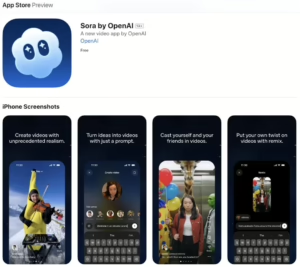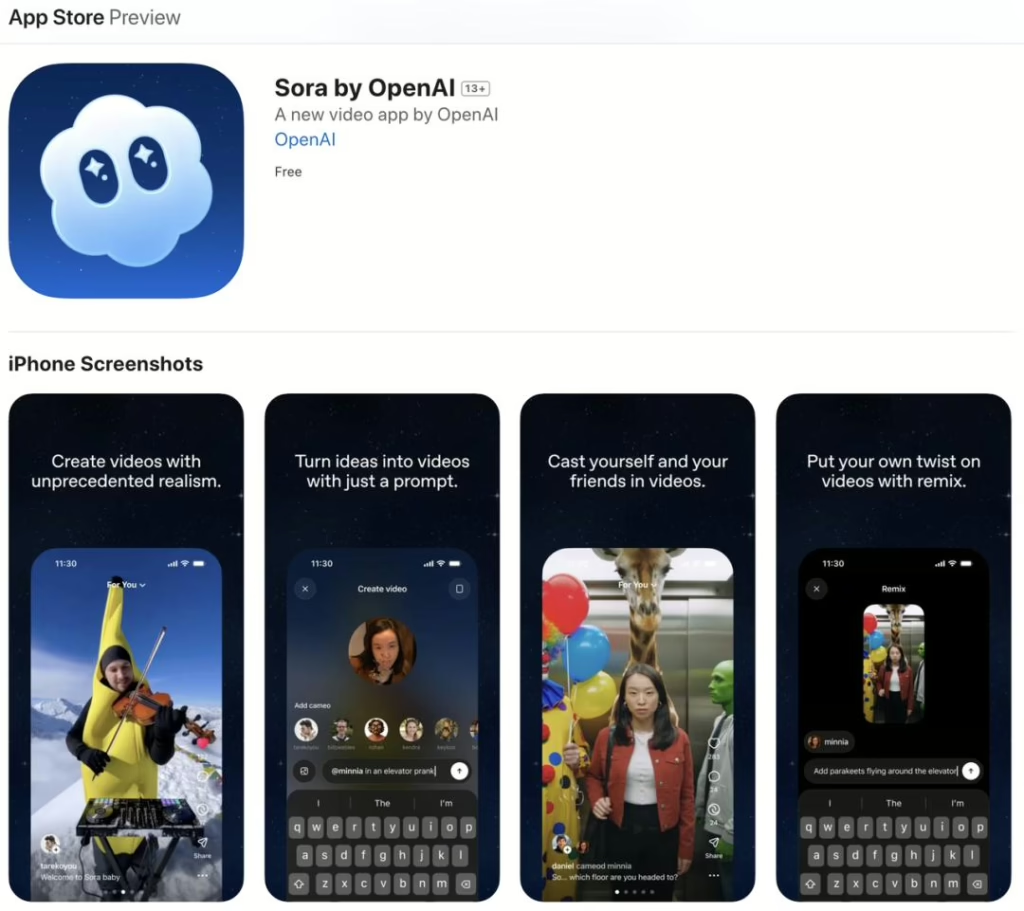In 2025, the battle for AI dominance has split into two very different strategies — and two very different companies.
On one side is OpenAI, racing toward “breadth.” It wants ChatGPT to be more than a chatbot: a super app woven into every corner of daily life, from shopping to video to office work. Its viral new release, Sora 2, has once again taken over headlines.
On the other side is Anthropic, doubling down on “depth.” Its new flagship model, Claude Sonnet 4.5, is marketed as the strongest AI coding assistant ever built. But just one day after its debut, Sam Altman stole the spotlight back with OpenAI’s video bombshell.
The contrast isn’t just product timing — it’s two opposing business logics:
-
OpenAI: win the mass market through scale, traffic, and consumer apps.
-
Anthropic: win the enterprise through specialization, safety, and code.
Some tech insiders have doubts. Elon Musk flatly declared this September that “Anthropic will never win.” Others worry that OpenAI is marching toward monopoly status. The question is no longer whether AI giants will dominate — but whether there’s still room for more than one winner.
OpenAI: Expanding Horizontally Into Everything
If there’s one word for OpenAI’s 2025 strategy, it’s horizontal expansion.
-
E-commerce integration: ChatGPT now lets U.S. users shop directly inside chats. With Instant Checkout and partnerships with Etsy and Shopify (payments by Stripe), the chatbot is becoming a shopping assistant + checkout lane in one.
-
Agentic Commerce Protocol: OpenAI even launched an open standard for merchants to plug into ChatGPT — a bid to transform it into a universal storefront.
-
ChatGPT Business upgrades: Teams can now collaborate with Shared Projects, sharing context and admin controls, turning ChatGPT into a knowledge and collaboration hub.
-
Sora app (AI video): Built on Sora 2, OpenAI’s newest consumer app looks like an AI-powered TikTok challenger. Instead of influencers, the stars are you, your friends, and even your pets.
Investors see Sora less as a TikTok clone and more as an Instagram-style social network for AI-generated memories. Unlike Reels or Shorts, Sora leans into user emotion, memes, and personal storytelling — though OpenAI still faces competition from Meta AI, TikTok AI Alive, and Google’s Veo.
And the numbers back its ambition: as of August 2025, ChatGPT has 700 million weekly active users — nearly 9% of the world’s population. With subscriptions, API fees, and now transaction cuts, OpenAI’s model is starting to look less like a research lab and more like a platform company.
Anthropic: Digging Vertically Into Code
Anthropic, by contrast, is all in on AI coding.
-
Claude Sonnet 4.5 positions itself as “the best programming model in the world.” It can hold focus for 30+ hours, refactor huge codebases, call external tools, and now includes project memory recall.
-
Market traction: Since launch, 36% of Claude’s use cases are coding. Claude Code has already generated $500M in revenue, growing usage 10× in three months.
-
Enterprise focus: Anthropic now counts 300,000+ corporate clients. Big-ticket customers paying $100k+ annually grew 7× year-over-year.
-
Business model: Unlike OpenAI’s consumer focus, Anthropic sticks to seat-based subscriptions + API usage, profiting from deep, resource-intensive tasks.
Financially, it’s working: Anthropic hit a $183B valuation after raising $13B in September. Its annual revenue run rate grew from $1B to $5B in eight months, projected to reach $9B by year’s end.
It’s also carving out a government niche with Claude Gov, signing a $200M Pentagon deal, working with the National Nuclear Security Administration, and even letting U.S. agencies test for sensitive data leaks.
But politically, it’s riskier: CEO Dario Amodei has openly criticized Trump, skipping a White House dinner attended by Sam Altman, Tim Cook, and other tech leaders. Some fear Anthropic’s stance could cost it future contracts.
Who’s Right — and Who’s Doomed?
The truth: both paths are real, both are risky.
-
OpenAI’s advantage is scale — 700M users, a pipeline of apps, and diversified monetization. But breadth risks shallowness (fraud, returns, compliance headaches, and weaker technical depth).
-
Anthropic’s advantage is focus — enterprise demand for safe, deep coding agents. But specialization risks irrelevance in consumer apps and slower brand visibility.
History offers clues: Microsoft built an empire on enterprise depth. Facebook conquered by scaling consumer breadth. In the AI age, both models could win.
The open questions:
-
Will ChatGPT shopping actually work at scale, or collapse under fraud and logistics?
-
Will Sora become the “AI TikTok,” or fade into app-store dust?
-
Will Claude’s coding edge hold once GPT-6 or Gemini catch up?
-
And — is Musk right that Anthropic “won’t win”?
For now, OpenAI ranks as the #3 most valuable private company globally, with Anthropic at #7, trailing by more than $100B in valuation. But if AI history shows anything, it’s that the race isn’t over — it’s just begun.

